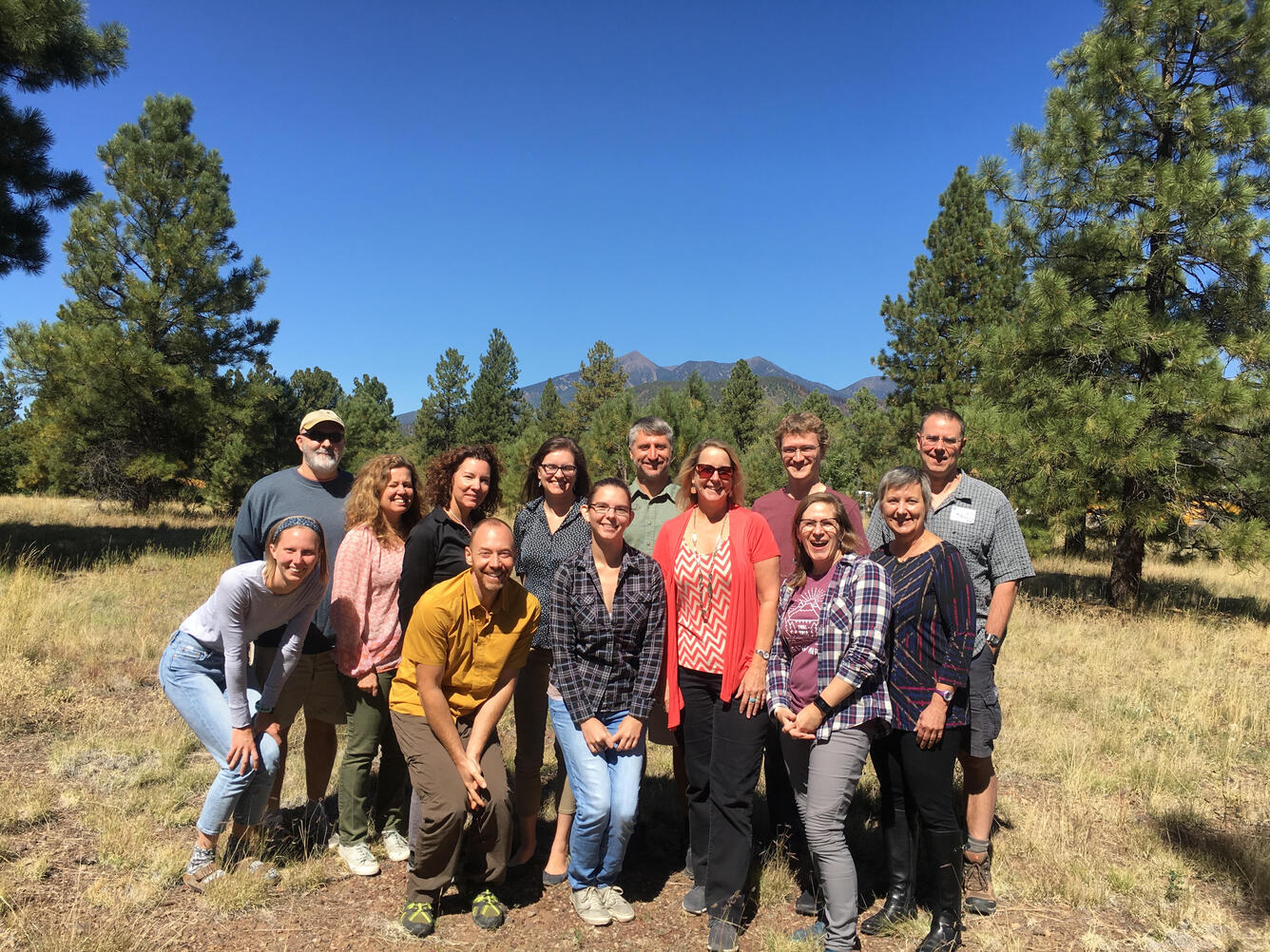Astrogeology extends expertise to PLANETS Project
Astrogeology’s subject matter experts help to develop science activities for middle-schoolers.
The Astrogeology Science Center hosted the annual PLANETS partner working group meeting on October 1-3, 2019. Planetary Learning that Advances the Nexus of Engineering, Technology, and Science (PLANETS) is a NASA-funded project that aims to develop and disseminate middle and elementary school level out-of-school time curricula and professional development modules that integrate STEM (science, technology, engineering, mathematics) in the context of planetary science. These activities can also be used in formal classrooms and they are designed to be aligned with NASA’s education goals and with the Next Generation Science Standards.
“Planetary science is so interdisciplinary and exciting that it is the perfect gateway to a lifetime of interest in STEM fields,” said USGS scientist Ryan Anderson.
The project is led by Principal Investigator, Joelle Clark, from Northern Arizona University’s Center for Science Teaching and Learning (CSTL) and includes STEM educator professional development experts, USGS Astrogeology Science Center subject matter experts, engineering curriculum developers at the Museum of Science in Boston, and STEM educator networks across the country. All the key players were at the meeting, including Magnolia Consulting firm’s Carol Hayden who will provide an evaluation of the project once complete in 2021.
Astrogeology’s subject matter experts - Elise Rumpf, Greg Vaughan, and Ryan Anderson - help to develop the activities in all of the PLANETS units and ensure that the science is as accurate as possible. "No one on our team could have created effective planetary science themed STEM education materials on their own," says Greg Vaughan. “The subject matter experts might get the science facts right, but the presentation of the materials may be ineffective for students and teachers. The unique advantage of this project is that it brings together a whole group of diverse experts to develop the best possible STEM curricula for students.”
The PLANETS curricula can be downloaded for free from the project website: planets-stem.org. The first two educational units, published in 2017 by the Engineering is Elementary® program at the Boston Museum of Science, are focused on the engineering of remote sensing technology and on the engineering of water reuse systems. So far, it is estimated that PLANETS materials have been used with more than 25,000 students in all 50 states and several other countries.
USGS Astrogeology is working with NAU CSTL on a series of science-focused activities that accompany the engineering units. The first Science Series, the Remote Sensing of Mars, will be available in 2020.
The PLANETS project is up for renewed funding in 2021. “As scientists, it is wonderful to work with education experts to develop these activities that allow us to share our love of science with students and educators. I hope NASA chooses to fund this project again: I can’t wait to see what we come up with next!” says Ryan Anderson.


